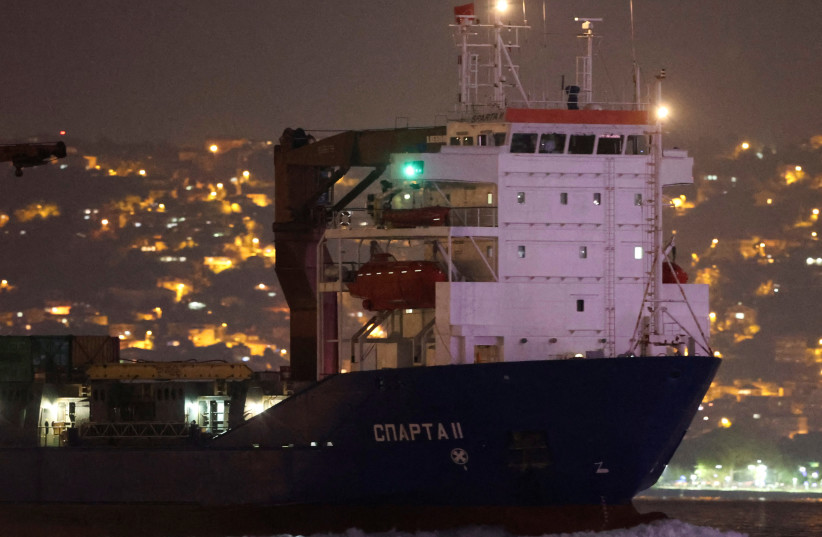Turkey halted the transit of Western-sanctioned goods to Russia this month after a year of war in Ukraine and mounting US and European pressure on Ankara for action, a top export official and a diplomat said.
The Turkish government handed companies a list of banned foreign goods and instructed them not to transship those to Russia beginning on March 1, said Cetin Tecdelioglu, head of the Istanbul Ferrous and Nonferrous Metals Exporters Association.
"Any goods on that list are blocked from Russia no matter which country they come from," he said.
A European Union official told Reuters that Ankara had given the European Commission verbal assurance that from March 1 goods would not transit onward to Russia if they are covered by EU, US or UK sanctions and export controls.
Turkey's trade ministry declined to comment.

Western nations slapped record sanctions on Moscow after its invasion of Ukraine in February last year.
Yet supply channels have remained open from Black Sea neighbor Turkey and other world trading hubs, prompting Washington to warn last month about the export of chemicals, microchips and other products that can be used in Moscow's war effort.
NATO member Ankara has sought to balance its good ties with both Moscow and Kyiv amid the war. It opposes the sanctions on principle but has said they will not be circumvented in Turkey, and that no shipped products can be used by Russia's military.
"Serious warnings"
Given the "serious warnings" from Western governments, this was an "opportunity" to avoid a confrontation with the EU, the destination of half of Turkish exports under a joint customs union, Tecdelioglu told reporters.
"There was a list of restrictions on re-exports from free trade zones to Russia beginning in March, and an instruction was given," he said.
However, goods produced in Turkey even with components from other countries can still be shipped to Russia without restrictions, he said.
He said Turkey's new restrictions set off a search among Russian importers for alternative suppliers in Kazakhstan and elsewhere. "They don't care about the cost anymore. They are just trying to finish their products," he said.
Reuters reported last week that Russian companies have flooded Kazakh partners in recent weeks with new requests for some of the thousands of items banned by the West, with two of the sources citing new Turkish restrictions.
At least $2.6 billion of computer and other electronic components flowed into Russia in the seven months to Oct. 31, Reuters separately reported in December. At least $777 million of these products were made by Western firms whose chips have been found in Russian weapons systems.
